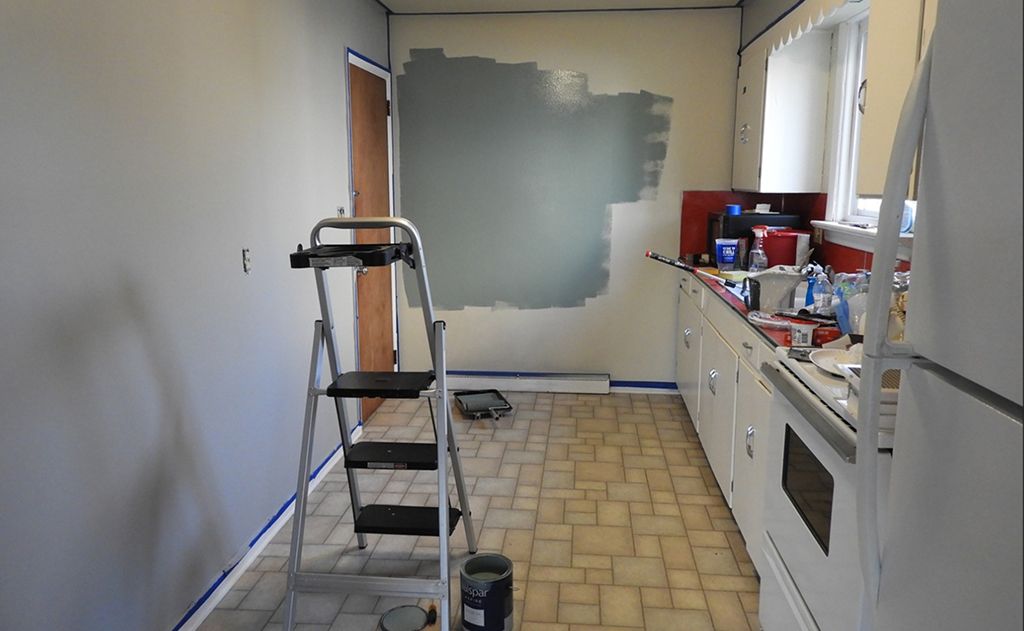Summer is the best time of the year to explore Northeastern Pennsylvania (NEPA)! Alright, I lied, my favorite time of the year in our region is early autumn with cider donut runs, changing foliage and high school football back on the menu, but summer is easy on the eyes too. There’s plenty to see and do in the Greater Scranton area and we hope you can set aside some time to get busy and explore.
NEPA has diverse environments with everything from hiking trails to city streets and commercial businesses in the downtown areas of Scranton, Wilkes-Barre, Dickson City, to name a few. You can explore much of this region from our “search by city” page.
Over the past two years, homebuyers have looked at their purchase slightly differently. Now, some buyers desire spaces where they can work-from-home. They want living spaces without open floor plans to allow for remote work in addition to having areas for their children to complete their homework and other ways to escape. Are open floor plans going out of style? Maybe, but the pandemic brought us here and we’ve taken notice of this trend in recent months. A modification in purchasing habits certainly happens from time-to-time. That’s why there are trends in the first place, but this one came on rapidly. Solitude in the home is welcomed and some buyers need walls for crying out loud. But if you can’t break from an open-concept home, perhaps living in a walkable community will help ground you and alleviate some of that stress.
In Northeastern Pennsylvania, walkable communities are slightly harder to discover, because after all, we have many rural areas. On the other hand, you can get just about everywhere in Scranton. While various parts of the city are certainly walkable and unique to the area (Green Ridge, North Scranton or the Hill Section immediately come to mind), car traffic has its day too. Is Scranton walkable? Yes, but it didn’t make our list.
The tiny town of Jessup is nestled between Mount Cobb and the Lower Valley (Blakely) with a good mix of dwellings. There’s a rich heritage here, especially from those of Italian-American descent. The town is laid out well with the Casey Highway (Route 6) cutting through/above town, yet not obtrusive in any way. Jessup has a few parks for its residents to frequent, including Jessup Memorial Field Park & Kids Korner and Eales Preserve (a nature conservancy). Another bonus for inhabitants is the ease of access to the Lackawanna River Heritage Trail, in the north section of town. Shops and restaurants are within walking distance and most sit on Church Street or Hill Street. One drawback is walking access to grocery stores. For instance, the nearest one is approximately 1 to 2.5 miles depending on where you live. While some errands require car use in Jessup, the town does feature tourists at various times of the year and has access to public transit. Is Jessup walkable? Yes, but it didn’t make our list either.
Nonetheless, here are NEPA’s four most walkable communities:
Location – Northeast of Wilkes-Barre, southwest of Scranton, in Luzerne County
Access – Route 11 and within close proximity to Interstate 81 and the northeast extension of the Pennsylvania Turnpike
Walk Score – 76
Highlights – Campbell’s Ledge is close to Pittston and for those who love to walk/bike, hop on the Lackawanna River Heritage Trail
Parks – Riverfront Park, Sullivan Park, Jefferson Park, James Clark Park, Albert West Park
Amenities – Restaurants and shops fill in Main Street as well as across the bridge in West Pittston (on/off Route 11)
Location – Neighboring Scranton on its east side
Access – Ranks very high with the ability to connect to Interstates 81, 84, 380/80 and the Casey Highway, all directly from town
Walk Score – 74
Highlights – Walking and biking around town is relatively easy with the wonderful sights of the Dunmore Cemetery and Marywood University. Scranton is relatively close too.
Parks – McHale Park (Dunmore Community Center), Sherwood Park, Saint Anthony’s Memorial Park
Amenities – Restaurants and shops along South Blakely and East Drinker Streets
Location – Northwest of Scranton in Wyoming County
Access – Route 6 and Route 29
Walk Score – 61
Highlights – Some of the cutest shops you’ll find outside of Clarks Summit and Honesdale, businesses are coming back into town and if you visit, you’ll see why
Parks – Riverside Park, McCord Park, Lazybrook Park
Amenities – Wonderful access to stores, restaurants and more on Tioga Street or Bridge Street; the Bypass has also helped keep much of the business/commuter traffic away from town
Location – Southwest of Scranton
Access – Quick ability to connect to the northeast extension of the Pennsylvania Turnpike, Interstate 81 and Route 11
Walk Score – 59
Highlights – Pizza is a favorite here, but you probably already knew that
Parks – There are nearby parks, which are worth the trip, but other than softball and little league fields, there are no parks in this borough
Amenities – Superb access to restaurants, stores along Main and Oak Streets, grocery stores would need to be accessed by car


